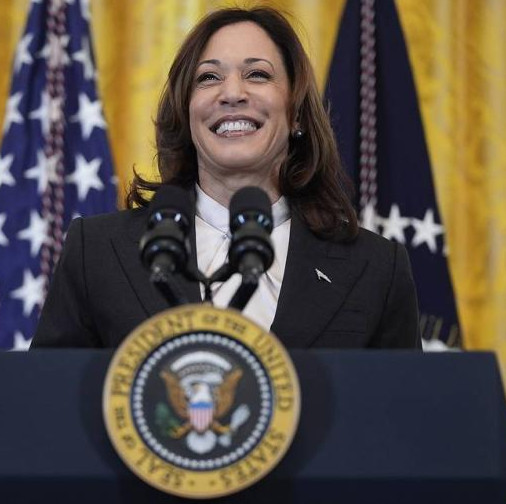
© AP Photo / David Mareuil
The Japanese authorities have done a flip-flop towards Russia after the beginning of its special military operation in Ukraine. A statement to this effect came from Japanese Prime Minister Fumio Kishida on June 21, in the course of debates between leaders of political parties prior to the upper house elections scheduled for July 10.
Indeed, the situation in Ukraine made Japan impose sanctions against over 700 citizens of the Russian Federation, starting with Russian President Vladimir Putin and so on down the list, as well as over 200 Russian companies and organizations. Tokyo froze the assets of Otkrytie Bank, Novikombank, Sovcombank, VTB, Rossiya Bank, Promsvyazbank, VEB.RF, Sberbank, Alfa-Bank and others worth about $35 billion. Restrictions have been imposed on exporting a number of goods and technologies, from quantum computers to Uniqlo casual wear. However, in the latter case, as well as with car manufacturers who have established assembly plants in Russia, we are talking about a voluntarily told engagement in the informal boycott. The companies that have not left the Russian market will obviously have to face certain pressure, as the West goes on with its economic war against Russia.
It makes no sense to list all the sanctions – they are patterned after those adopted by the United States, Great Britain and the EU. Just like the tactics of lifting restrictions on areas of their national interest.
This refers, for one, to liquefied gas supplied under the Sakhalin-2 project, which makes up for some 9 percent of Japan’s total consumption. It's not about infeasibility of replacing it. Japan has been cooperating with the USSR on the Sakhalin shelf since the 1960s. The Chinese taking over from it will be Tokyo’s political misconception. And the gas is here, within shouting distance, and it doesn’t require shipment through the stormy Pacific waters from the United States, or instability zones in the Middle East, or the seas of Southeast Asia. Japan is not going to "cut off its nose to spite its face" either figuratively or literally.
Another aspect is traditional fishing cooperation in Russia’s 200-mile zone. It is here that reestablishment of Russian-Japanese relations twice began in the 20th century ˗ for Japan this sphere definitely relates to domestic policy.
Economic sanctions are backed up by political rhetoric with plenty to spare. Japanese politicians take a hardline stance on Russia as regards the crisis in Ukraine, echoing Washington's dubious theses. The current extraordinary increase in gasoline, electricity, food prices is Russia’s fault, Prime Minister Fumio Kishida said at a recent press conference in Tokyo. In his opinion, the special military operation in Ukraine costs a pretty penny to people throughout the globe. Is it just me, or leaders of Japan and the United States really have one and the same speechwriter?
The audience of Japan’s disciplined media seems to have taken a long hard look at the toponymy and geography of Donbass, and the management of news has closed its doors to an alternative viewpoint.
In short, Japan and its establishment are quite predictably supportive of the focus on economic, political and informational boycott of Russia. However, the statement regarding Japan’s revision of policy towards this country, as mentioned by Kishida, is at least controversial.
In the political sphere, after post-war relations were normalized in 1956, Japan's stance was actually boiled down to demands to return the southern Kuril Islands that Tokyo fails to recognize as Russia's. And nothing else.
Given that Moscow did not even consider revising its post-war borders as demanded by a WWII aggressor country, which is now part of a hostile military-political bloc, this kind of rhetoric shut the door on at least remotely meaningful political dialogue between Russia and Japan.
After USSR collapsed, Japan started opposing any rapprochement between Moscow and the PRC, as it thought Moscow was ready to maintain a hotbed of tension at the Russian-Chinese border (in fact, the Cold War second front), while internal reform-related issues would prompt it to exchange the southern Kuriles for some tenuous economic "goodies". Veiled in rather streamlined plans for expanding economic and political cooperation, that policy had nothing to do with any quantum leap in bilateral relations.
The slightest divergence from the US-blessed line was clamped down on. Suffice it to recall how Ryutaro Hashimoto’s career ended after his initiative to start off-pattern negotiations with Yeltsin, or havoc at the Japanese Foreign Ministry following a series of talks between Japanese politicians and Vladimir Putin in the early 2000s.
Economically, Japan was pragmatic and set no strategic objectives. Forming the basis of its imports from Russia have always been oil, gas, coal, timber, fish, and non-ferrous metals. Japan will keep treating these purchases in a purely pragmatic way, proceeding from prices, logistics, international competition conditions, etc. Until very recently, Tokyo generally waived ˗ overtly or covertly ˗ strategic projects in the economy under the pretext of an unresolved territorial dispute.
In turn, Russia has traditionally bought upmarket but hardly unique machine-building products in Japan, mainly for the transport segment. Today, sanctions pressure is making this sphere shrink, and the question arises as to why should Russia sell anything, if it cannot buy what it needs with the funds raised?
Incredible as it may seem, the "turn to the East" Moscow announced a decade ago may well be stepped up under the existing circumstances. However, Japan does not fit in after having received the official status of Russia’s "unfriendly" nation, as it has always existed in the paradigm of the West. Things haven't changed all that much in its policy along the Russian track, except for sparing it disputable illusions.









